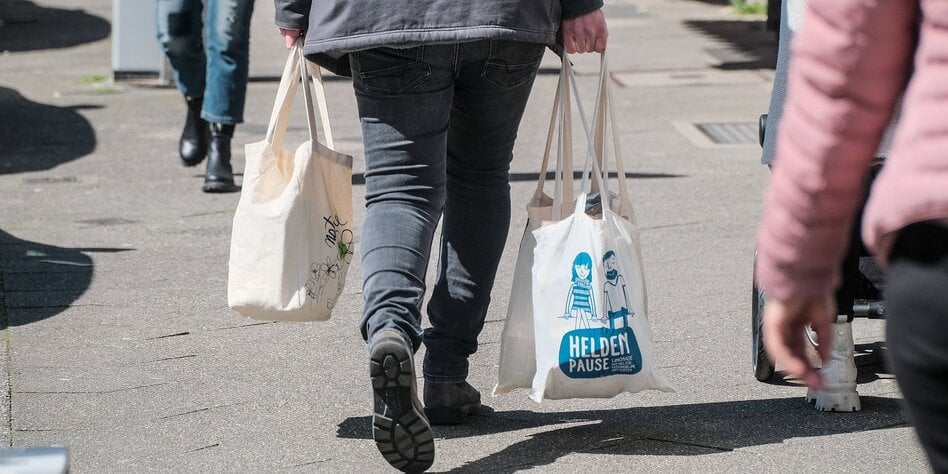
Caption:
Figures from the Federal Statistical Office (Germany):
Biggest drop in wages in 14 years
Real wages of employees fell by an average of 4 percent in 2022. Wage increases did not offset inflation.
BERLIN taz | Many employees have lost purchasing power in the past year. Real wages fell by an average of 4 percent in 2022 compared to the previous year, the Federal Statistical Office (Destatis) reported on Thursday . That was the sharpest drop in wages since 2008. Despite comparatively high wage demands and a number of strikes , the unions have so far not been able to compensate for the rise in prices.
In 2022, the inflation rate was 6.9 percent. Wages, on the other hand, grew by just under 3 percent. The difference accounted for the loss of employees by 4 percent. Of course, this trend could already be seen earlier, but now there is a revision of the calculation method at Destatis. That is why the minus for the employees is now somewhat higher than previously reported. One reason is that the new procedure now also includes, for example, wage payments in very small companies and earnings from partial retirement.
This year, however, the picture could be a bit friendlier. Inflation is now falling . The federal government expects 5.9 percent in 2023 and 2.7 percent in 2024. Meanwhile, the Verdi union and the German Association of Civil Servants have just pushed through an average salary increase of 11 percent in the public sector.
An offer from Bahn AG for an 8 to 10 percent wage increase is not enough for the EVG railway union, which is why it is threatening further strikes. It cannot be ruled out that the wage increases now being negotiated will exceed the rates of inflation in the coming years, which would allow many employees to make up some of their losses.
The loss of real wages in 2022 is an average value that does not affect all population groups equally. The well-to-do and rich spend a smaller part of their income on necessary consumption than people with low incomes.
The sharp price increases for certain foods, heating energy and petrol have a greater impact on low earners, as well as on commuters who drive old cars, for example. Conversely, people who generate income from capital, such as real estate, can do better than workers who depend solely on their wages.
And where does the money go that workers had to spend on higher prices? For the most part to the companies and their owners. So is this an unfair redistribution? Often not, because the companies also had to pay higher prices for the purchase of their products or preliminary products.
In some cases, however, there may have been a shift between local labor and corporate income due to inflation. Andy Jobst, inflation expert at credit insurer Allianz Trade, reported in a recently published study that “more than a third of the recent increase in food prices” in Germany cannot be explained by traditional drivers such as raw material costs or the development of energy prices. “There seems to be increasing evidence of profit-taking.”
Source: “https://taz.de/Zahlen-des-Statistischen-Bundesamtes/!5927716/“
